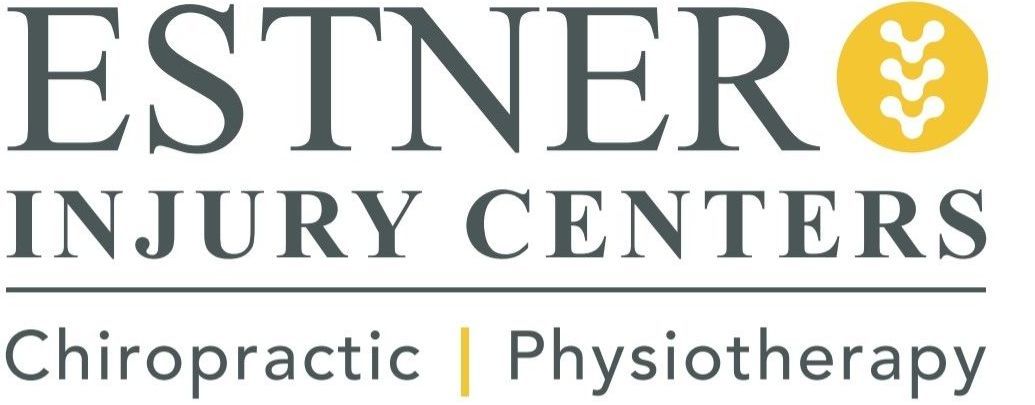Muscle Pinching: Risks and Complications of Untreated Pinched Nerves
Share
Risks and Complications of Untreated Pinched Nerves
Muscle pinching, or pinched nerves, is a common yet often overlooked condition that can lead to significant discomfort and health issues if left untreated. This condition occurs when surrounding tissues, such as bones, cartilage, muscles, or tendons apply excessive pressure to a nerve. The impact of untreated pinched nerves goes beyond temporary pain; it can lead to chronic health problems and decreased quality of life. Understanding the risks and potential complications is vital for timely and effective treatment.
Ignoring a pinched nerve can lead to prolonged discomfort and potential long-term damage. Symptoms can worsen over time, affecting your daily activities and overall well-being. At Estner Injury Centers in Rhode Island, we specialize in identifying and treating various types of pinched nerves, offering relief and promoting long-term health.
What Is a Pinched Nerve?
A pinched nerve occurs when excessive pressure is applied to a nerve by surrounding tissues. This pressure disrupts the nerve's function, causing pain, tingling, numbness, or weakness. A pinched nerve can happen at several sites in the body and results from various causes, including injury, arthritis, stress from repetitive work, or certain health conditions.
Symptoms of a pinched nerve depend on the location and severity of the nerve compression. They often develop gradually and can significantly impact quality of life if left untreated. At Estner Injury Centers, we focus on diagnosing the specific cause of nerve compression and creating a tailored treatment plan to alleviate symptoms and address the underlying issue.
Where Do Pinched Nerves Happen in the Body?
Pinched nerves can occur in several areas of the body, each presenting its unique set of challenges and symptoms. Common sites include the neck, causing cervical radiculopathy, and the lower back, leading to lumbar radiculopathy or sciatica. The mid-back area can also experience pinched nerves, often related to the spinal column's health and alignment.
Other common sites for pinched nerves include the wrist, resulting in conditions like carpal tunnel syndrome, and the foot, causing symptoms such as foot pain and issues like Morton's neuroma.
The Most Common Signs of a Pinched Nerve
Recognizing the signs of a pinched nerve is the first step toward getting appropriate treatment. Some common symptoms include:
- Pain in the Affected Area: This pain might be sharp, aching, or burning and can worsen with certain movements or activities.
- Numbness or Decreased Sensation: You may experience a lack of feeling in the area supplied by the nerve, including the fourth toes, in cases of a pinched nerve in the foot.
- Muscle Weakness: The affected muscles may weaken, affecting your ability to perform everyday tasks, particularly with a lower back nerve pinch.
- Pain that Radiates: Pain from a pinched nerve, such as in the case of a sciatic nerve issue, can radiate along the course of the nerve.
- Tingling or 'Pins and Needles': This sensation is common in nerve entrapment conditions and can be particularly noticeable in extremities like the foot.
If you experience these symptoms, especially signs of a pinched nerve in the foot, seeking professional advice is important. Early intervention can prevent the condition from worsening and provide much-needed pain relief.
How Does a Chiropractor Treat a Pinched Nerve?
Chiropractic care is an effective method for treating pinched nerves. At Estner Injury Centers, our chiropractors use various techniques to relieve nerve pressure, including spinal manipulation, soft tissue therapy, and specific exercises. These treatments aim to alleviate pain and improve nerve function.
A chiropractor's approach to treating a pinched nerve focuses on the root cause of nerve compression. Whether it's a herniated disc, muscle pinching, or misalignment in the spinal column, our chiropractors tailor their approach to address the specific issue. This personalized treatment plan provides pain relief and helps prevent future occurrences.
The Benefits of Seeing a Chiropractor for a Pinched Nerve
Seeking chiropractic care for a pinched nerve offers several benefits. A few of the top benefits include:
- Targeted Pain Relief: Chiropractic adjustments can provide immediate relief from pain associated with a pinched nerve, including foot pain and lower back discomfort.
- Non-Invasive Treatment: Chiropractic care is a non-invasive option, offering an alternative to surgery for conditions like herniated discs and nerve compression.
- Improved Nerve Function: Adjustments and therapy can improve nerve function, reducing symptoms like numbness and weakness.
- Personalized Care: Chiropractors provide customized treatment plans based on your specific condition and symptoms.
- Preventative Measures: Along with treating current symptoms, chiropractic care offers advice and exercises to prevent future pinched nerves.
Incorporating chiropractic care into your treatment plan can significantly improve your condition and overall quality of life.
Contact Estner Injury Centers for a Pinched Nerve
If you're experiencing symptoms of a pinched nerve, including a pinched nerve in the foot or mid-back, don't wait for the condition to worsen. Estner Injury Centers in Rhode Island is equipped with the expertise and resources to provide effective treatment. Our team of chiropractors and physical therapists is dedicated to helping you achieve pain relief and improve your overall health. Contact us today to schedule an appointment and take the first step towards recovery and pain-free living.

